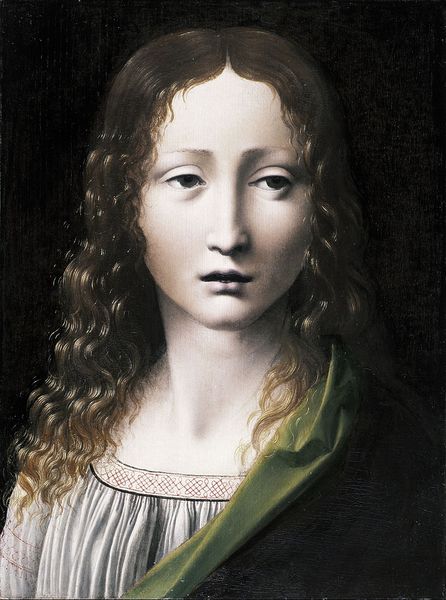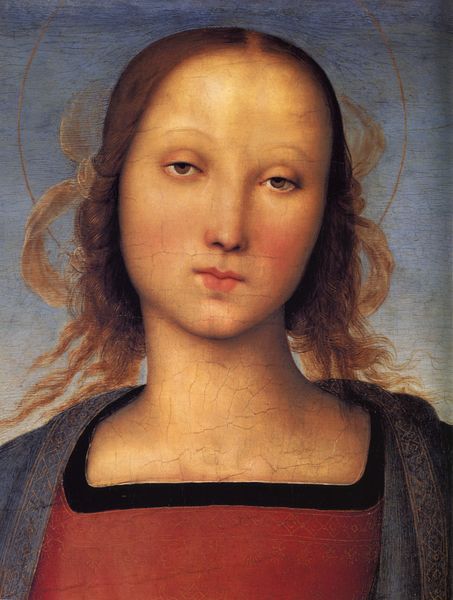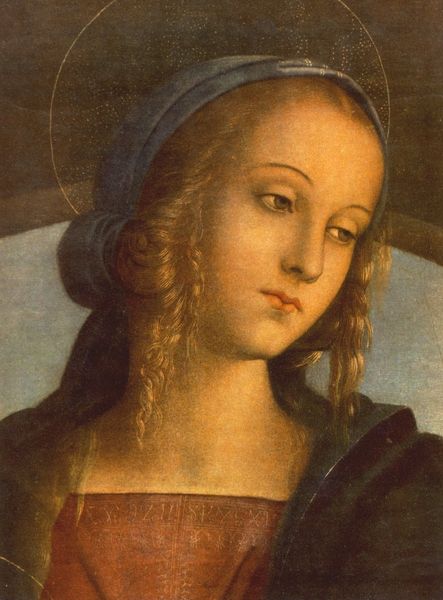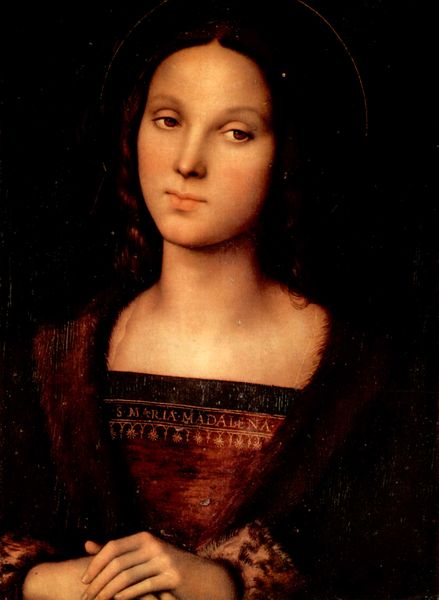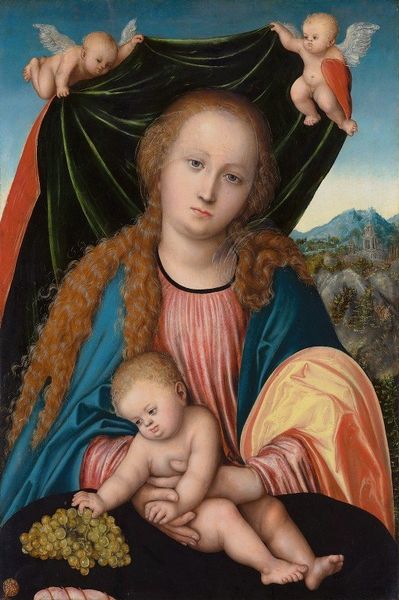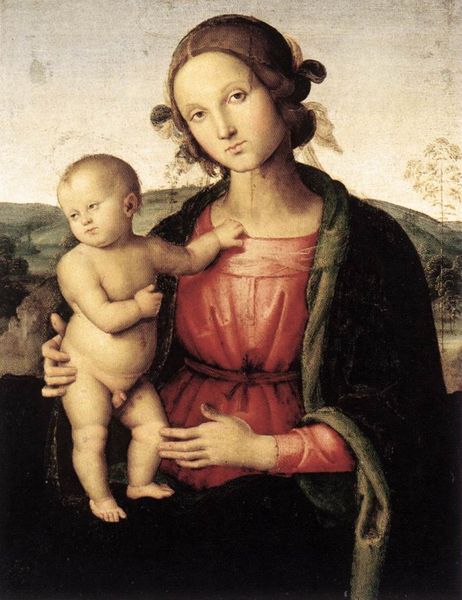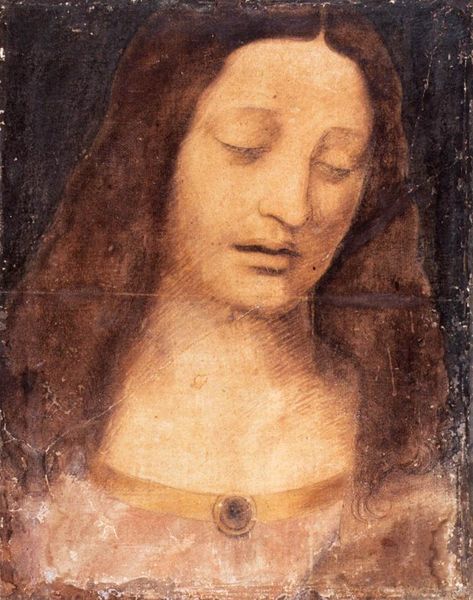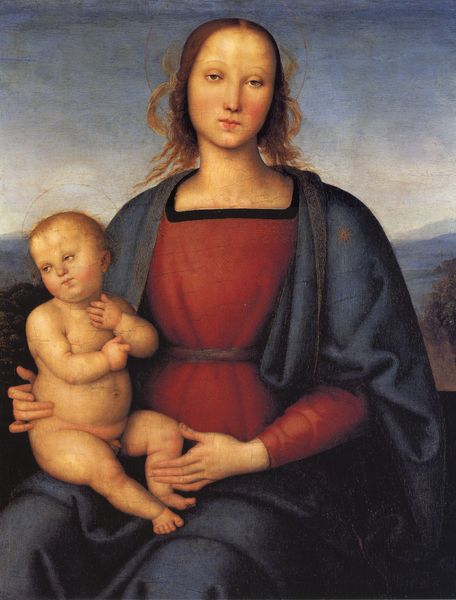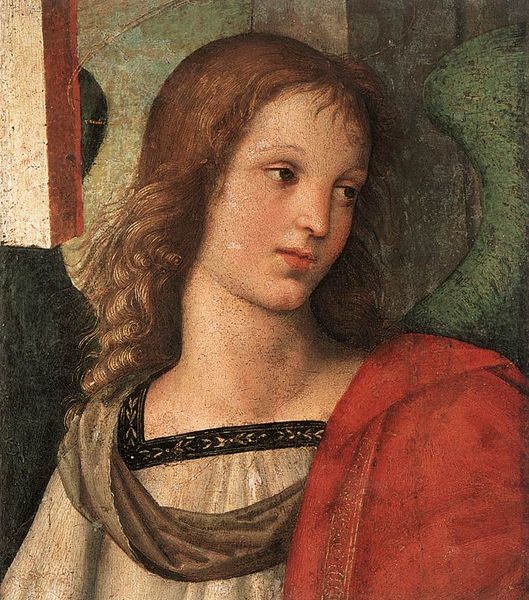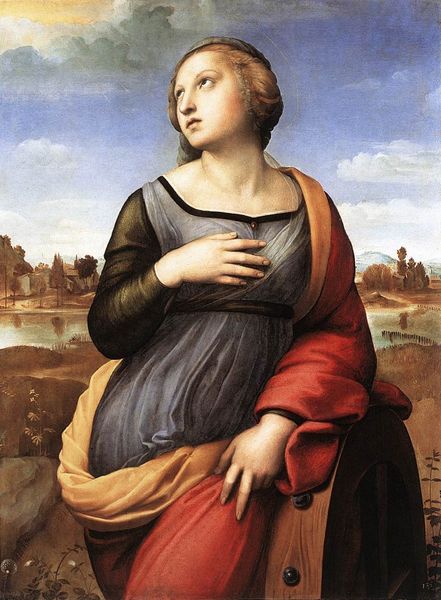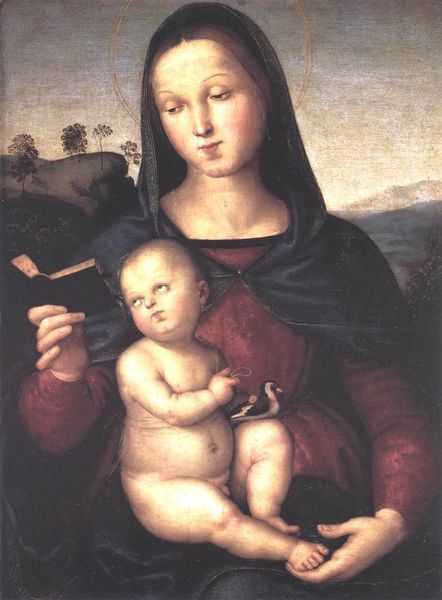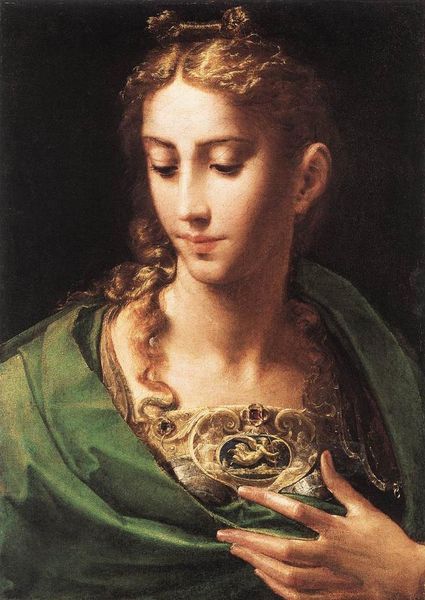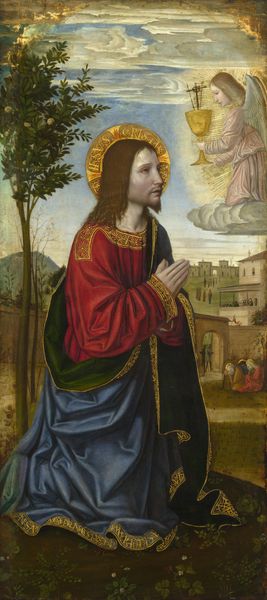
painting, oil-paint
#
portrait
#
high-renaissance
#
painting
#
oil-paint
#
history-painting
#
academic-art
#
italian-renaissance
Copyright: Public domain
Correggio's "Salvator Mundi" was created sometime around the 16th century using oil paints. The material qualities of oil paint are essential to the work's impact. Correggio's skill in layering translucent glazes creates a luminous, almost ethereal effect. The colors radiate from within, particularly in the subject's skin and hair, giving the figure a lifelike presence. The meticulous brushwork is evident, demanding significant time and care to complete. In the Renaissance era, the production of oil paint was a craft in itself, with pigments sourced from various minerals and plants, and ground by hand. The labor-intensive process reflects a pre-industrial era, where value was intimately tied to the time and skill invested in creation. Looking closely, we can see the dedication and craft that went into creating this iconic artwork. This prompts us to rethink traditional art distinctions between high art and craft.
Comments
No comments
Be the first to comment and join the conversation on the ultimate creative platform.
